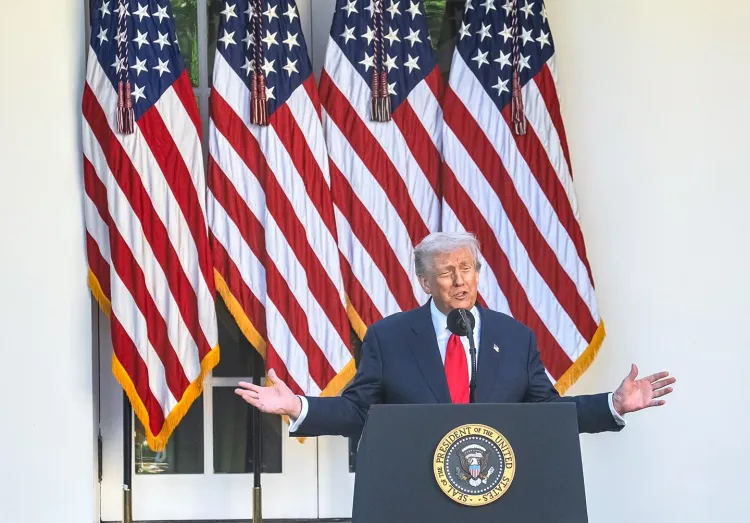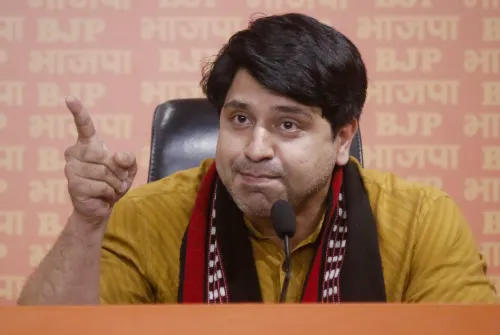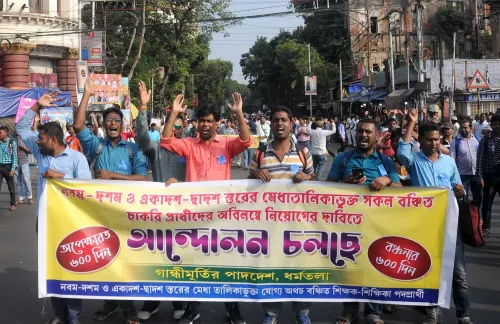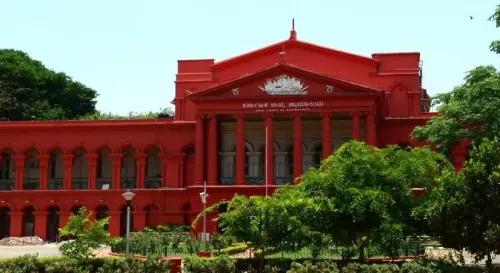Can Trump Achieve What Regional Negotiators Cannot in the Pak-Afghan Peace Process?

Synopsis
Key Takeaways
- Trump has renewed efforts to mediate peace between Pakistan and Afghanistan.
- Pakistan's government and military are seeking closer ties with the US.
- A US-brokered ceasefire could have significant implications for the Taliban.
- Human rights violations continue to be a critical issue amid military operations in Pakistan.
- The outcome of negotiations remains uncertain, with varying opinions on US interests.
New Delhi, Oct 27 (NationPress) While regional negotiators struggle to facilitate a peace agreement between Afghanistan and Pakistan, President Donald Trump has stepped forward with renewed efforts to settle the longstanding dispute.
Currently on a three-nation tour in Asia, the President highlighted his commitment to swiftly resolving tensions between these neighboring countries during an event in Kuala Lumpur, Malaysia, which celebrated the ceasefire agreement between Thailand and Cambodia.
This isn't the first occasion where the US President has positioned himself as a mediator among conflicting nations, expressing a desire for the Nobel Peace Prize that eluded him this time around. Regarding the Afghanistan-Pakistan conflict, Trump has asserted on multiple occasions that he could easily mitigate the tensions.
Trump might be onto something here. Recently, both the head of Pakistan’s civilian government and the army chief have been working to strengthen ties with the White House.
According to Prime Minister Shehbaz Sharif, Pakistan has renominated Trump for the Nobel Peace Prize. Sharif, along with General Asim Munir, visited the White House to persuade Trump to develop Pasni, a small deep-water port located in Gwadar district, Balochistan.
In a bid to charm the US President, Munir was photographed showcasing rare earth minerals believed to be from Pakistan, aiming to transform the port into a strategic mineral export terminal.
This development could also help to address the ongoing rebellion in Pakistan, particularly in the troubled regions of Baluchistan and Khyber Pakhtunkhwa, where severe human rights violations are reported amid military operations. Civilians, including women and children, have been victims of both gunfire and aerial bombardments, according to reports.
In a move welcomed by Islamabad, the US Department of State officially designated the Baloch Liberation Army as a foreign terrorist organization in August. The presence of US troops could also provide Pakistan with some relief from ongoing skirmishes along the Afghan border, which escalated into deadly confrontations recently.
Trump has referred to Munir as “my favorite field marshal,” even in his absence.
A US-brokered ceasefire would grant the Taliban temporary access to Washington, despite their assets remaining frozen. It would also provide them with an opportunity to lobby the White House for support, if not full recognition.
Trump's previous engagement with the Taliban during his first term led to the “Agreement for Bringing Peace to Afghanistan,” signed in Doha, Qatar, on February 29, 2020, while the Taliban leadership was based there.
During this period, the Tehrik-e-Taliban Pakistan began to distance itself from the parent organization and adopt more extreme radicalism. The agreement explicitly stated that although it was with the “Islamic Emirate of Afghanistan,” Washington does not recognize such an entity as a state.
It ensured that “The Islamic Emirate of Afghanistan, which is not recognized by the United States as a state and is known as the Taliban, commits that its released prisoners will adhere to the responsibilities outlined in this agreement so they do not pose a threat to the security of the United States and its allies.”
The subsequent withdrawal of international troops occurred under the Joe Biden administration and appeared rushed and disorganized.
Recently, as reported by Afghanistan’s Tolo News, a government spokesperson noted Washington’s offer to mediate between Kabul and Islamabad, suggesting that the US should leverage its influence to assist Afghanistan.
However, opinions vary. Military affairs analyst Yousuf Amin Zazi expressed caution in a statement to Tolo News, stating: "What matters is which scenario benefits the U.S. more – war between Pakistan and Afghanistan or peace between them since America has always prioritized its own interests."









